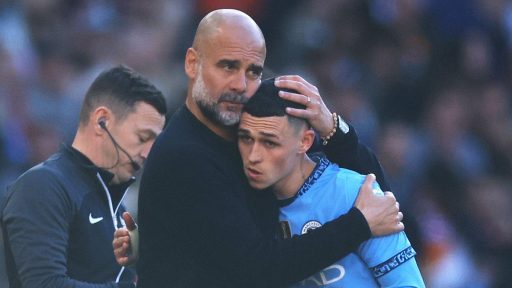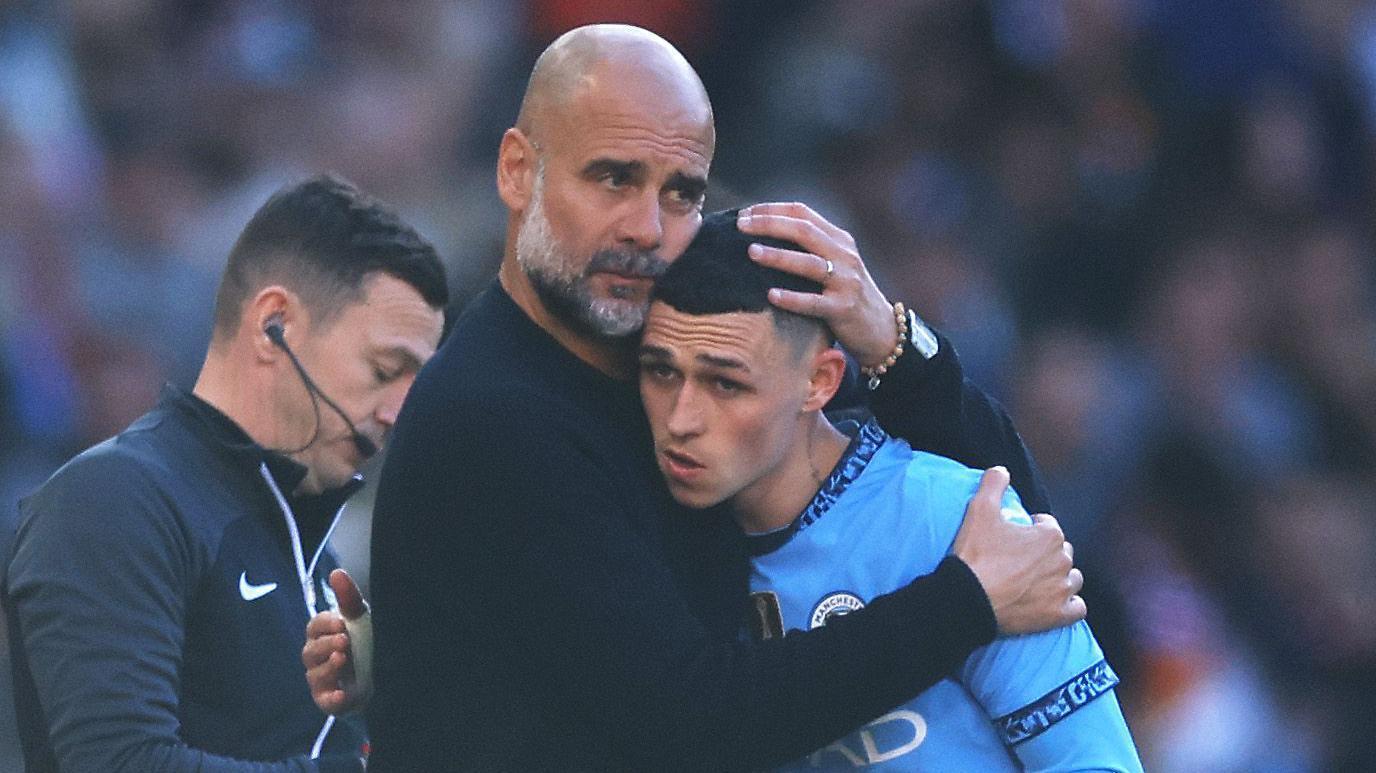Instant Access
No Waiting, Start Streaming Now
24/7 Support
Always Here to Help
Multi-Device
Watch on Any Screen
8K Quality
Crystal Clear Streaming


Instant Access
No Waiting, Start Streaming Now
24/7 Support
Always Here to Help
Multi-Device
Watch on Any Screen
8K Quality
Crystal Clear Streaming
In the vibrant tapestry of football culture, fan chants are more than just anthems; they are an expression of identity, passion, and sometimes, rivalry. Recently,Manchester City manager Pep Guardiola found himself at the center of a heated discussion ignited by the chants directed at Phil Foden,sung by Manchester United supporters during a gripping match. While the raucous atmosphere of a football stadium frequently enough breeds playful banter,Guardiola’s comments suggest a deeper divide—one that raises questions about sportsmanship and the essence of class in football fandom. As we delve into the implications of these chants and the reaction they provoked,we explore the delicate balance between rivalry and respect in a sport that thrives on both.
Football rivalries are the heartbeat of the sport, fueling passion, pride, and unforgettable moments on and off the pitch. But the beauty of these matchups lies in how fans and players uphold sportsmanship, irrespective of the badge they wear. The chants aimed at Phil Foden from certain Manchester United supporters may have crossed a line, revealing an unfortunate lack of class that can tarnish even the most historic rivalries.
Managing emotions during fiercely contested battles can be challenging, especially for fans deeply invested in their team’s success. However, the true winners are those who rise above negativity to create an inclusive atmosphere. Compare the impact of respectful behavior versus opposed actions:
| Behavior | Effects |
|---|---|
| Respectful Chants | boosts morale, builds admiration |
| hostile Chants | Divides fans, stains club reputation |
fan behavior has long been an integral part of football culture, but there’s a thin line between passionate support and actions that undermine the spirit of the game. When chants become personal or derogatory—like those directed at Phil Foden by Manchester United fans—they highlight a troubling trend. Such actions can significantly affect a player’s focus and mental state,leaving them feeling humiliated or distracted. For young talents like Foden, who are still navigating the pressure of elite football, these moments can either fuel resilience or chip away at confidence. The question then arises: does this behavior energize the rival players, or does it diminish the spectacle for everyone involved?
In a sport where passion is paramount, it’s crucial to remember the line between banter and offense. To better understand this dynamic, here’s a fast comparison of how different fan behaviors impact players:
| Behavior | Possible Impact |
|---|---|
| Encouraging chants | Boosts confidence and team spirit |
| Derogatory insults | Increases stress, lowers performance |
| Respectful silence during injuries | Fosters camaraderie and mutual respect |
Football is a sport that thrives on passion, but it’s equally crucial to foster respect and sportsmanship among fans. Supporters hold the power to elevate the game or diminish its spirit with their actions. Engaging in rival team banter is natural, yet it should never cross the line into offensive chants or disrespectful behavior. Encouraging respectful dialog between supporters can build camaraderie and reduce hostility during matches. Clubs and prominent figures in football have a obligation to emphasize these values, ensuring that fierce competition doesn’t overshadow mutual respect.
Adopting measures like collaboration between fan communities and stricter enforceable rules can make a important difference. Here are ways to inspire better behavior:
| Action | Impact |
|---|---|
| Promoting positive chants | Boosts morale and reduces tension |
| Anti-discrimination policies | Encourages inclusivity among fans |
| Fan education programs | Equips supporters to handle rivalries respectfully |
When emotions run high in football, it’s easy for rivalries to escalate beyond the spirit of the game. However, fostering respectful and engaging interactions between fans can contribute to a more enjoyable and inclusive sporting culture. To achieve this, clubs and fan groups can work together to create a sense of shared participation in the beautiful game. Here are a few ideas:
Positive interactions can also be bolstered through small gestures that break down hostility. Such as, rival club supporter groups can coordinate charity efforts together, reminding fans of shared values beyond football. Here’s how such initiatives can look:
| initiative | Goal | Example |
|---|---|---|
| Food drive | Support local communities | Donations for shelters before derby matches |
| Youth Engagement | Build respect among younger fans | Team-led workshops with rival mascots |
| Joint Watch Parties | Enhance camaraderie | Streaming historical matches together |
Efforts like these not only reshape the narrative around rivalries but also demonstrate that competition and camaraderie can coexist beautifully in football culture.
In the world of football, where passion and rivalry often ignite fierce debates, the recent comments made by Pep Guardiola regarding the chants aimed at Phil Foden by Manchester United fans serve as a poignant reminder of the fine line between spirited rivalry and lack of respect. guardiola’s assertion that this behavior reflects a lack of “class” not only highlights the enduring tension between two of England’s most storied clubs but also raises questions about the culture surrounding football fandom. As the beautiful game continues to evolve, it challenges us to reflect on how we engage with one another—on and off the pitch.
Ultimately, the essence of football lies in its ability to unite, entertain, and provoke thought. While chants may echo in stadiums, it is indeed our collective responsibility as fans to steer the narrative towards mutual respect and sportsmanship.As the seasons roll on and rivalries deepen, let us remember that the true spirit of the game is enriched not just by the triumphs and defeats on the field, but by the dignity and integrity with which we uphold our love for the sport. it’s not just the goals scored but the character displayed that defines the legacy of football—one chant at a time.
34,353
Live TV Channels
162,404
Movies
27,802
Series
284,023
Total Subscriptions
139,854
Users Online
142,887
Total Resellers

